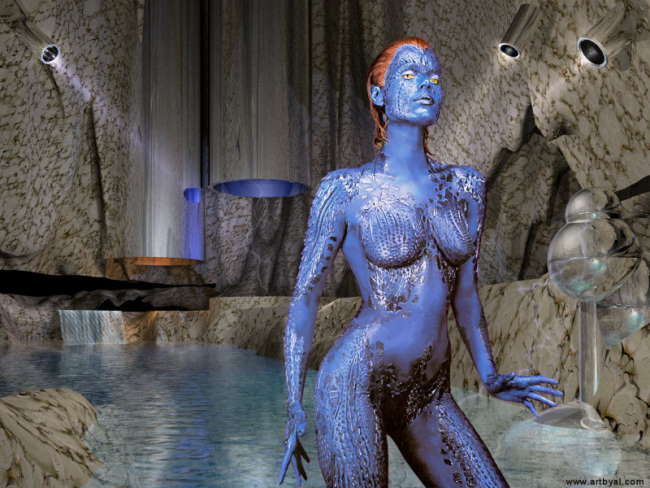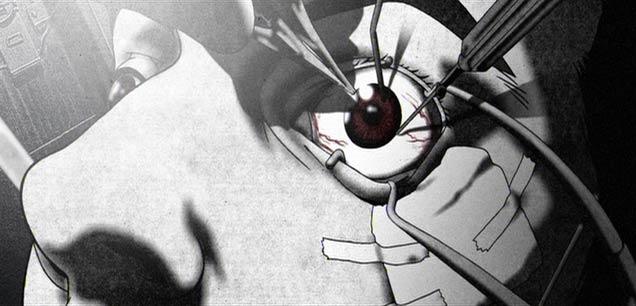June 8, 2006
Transhumanists: Ushering In the Posthuman Era or…?
The Institute for Ethics and Emerging Technologies (IEET), recently held a conference at Stanford University Law School on Human Enhancement Technologies and Human Rights (HETHR). The description for the conference described the purpose as follows:
Defenders of enhancement argue that the use of biotechnologies is a fundamental human right, inseparable from the defense of bodily autonomy, reproductive freedom, free expression and cognitive liberty. While acknowledging real risks from genetic, prosthetic, and cognitive enhancement, defenders of enhancement believe that bans on the consensual use of new technologies would be an even greater threat to human rights.
Health care, disability and reproductive rights activists have argued that access to technology empowers full and equal participation in society. On the same grounds a generalized right to “technological empowerment” might connect defenders of enhancement technologies with disability activists, reproductive rights activists with would-be parents seeking fertility treatments, the transgendered with aesthetic body modifiers, drug policy reformers and anti-aging researchers with advocates for dignity in dying.
Yet, what, if any, limits should be considered to human enhancement? On what grounds can citizens be prevented from modifying their own genes or brains? How far should reproductive rights be extended? Might enhancement reduce the diversity of humanity in the name of optimal health? Or, conversely, might enhancements inspire such an unprecedented diversity of human beings that they strain the limits of liberal tolerance and social solidarity? Can we exercise full freedom of thought if we can’t exercise control over our own brains using safe, available technologies? Can we ensure that enhancement technologies are safe and equitably distributed? When are regulatory efforts simply covert, illiberal value judgments?
Between the ideological extremes of absolute prohibition and total laissez-faire that dominate popular discussions of human enhancement there are many competing agendas, hopes and fears. How can the language of human rights guide us in framing the critical issues? How will enhancement technologies transform the demands we make of human rights?
The IEET is associated with the World Transhumanist Association, which is headed up by Citizen Cyborg author and Cyborg Democracy Blog contributor, James Hughes.
The Reviews: George Dvorsky, a Board member of IEET had a quick post listing a number of the reviews. Depending on which review you read for the HETHR conference, you could take away that this was either one of the most enlightening debates of the decade or that was a conference filled with left-wing crackpots espousing half-baked theories one would expect after a bad LSD trip. Not surprisingly, George thought the event was a smashing success:
The central focus of the conference was to construct a case for human enhancement based upon the lofty principles of human rights, liberalism and bodily autonomy. The event was in no small way a direct challenge to the burgeoning anti-enhancement camp that has arisen in recent years to combat what is perceived to be a threat to human dignity and humanity itself. Organizers of HETHR hoped that the conference would demonstrate that a viable and compelling case could be made in favour of enhancement. Based on what I heard at the event, I would say it was mission accomplished.
Hmmm…Mission Accomplished seems to have taken on a different meaning these past few years - yet in this case, perhaps the words were well chosen. Others clearly disagree. Wesley Smith from the Weekly Standard writes:
I just got home from a transhumanism conference (”Human Enhancement Technologies and Human Rights”) being held at Stanford through tomorrow (Sunday). Among the items I learned today are: Feminist bioethics supports genetic engineering so that men can be altered to have babies and women can be freed from the tyranny of menstruation; animals should be enhanced to permit them to become equivalent to humans, including the ability to use the Internet–before, that is, all animal life is transformed into non biological states of existence, which apparently the living planet Gaia requires in order to survive; funding anti-aging research is more important than funding treatment for fighting disease in Africa; we probably should permit people who want to be amputees to achieve their desires; and, freedom requires a maximum morphological license to enhance our biological units.
If this is at all representative, I would have to agree that the animal part is especially odd. Who gives us the right to transform elephants or Dolphins, for that matter? Modifying our brains to be able to communicate with Dolphins - Cool! Modifying dolphins to communicate with us, and only then asking their permission if this was a good idea? Not cool. Then again, I’m guessing this is a slightly biased assessment. William Saletan from Slate.com submitted a slightly kinder assessment, although not by much:
Remember those kids who played Dungeons & Dragons and ran the science-fiction club in your high school? They’ve become transhumanists….De Grey, the guy with the beard, called for higher taxes and research funding to “end the slaughter” of human aging. He argued, incoherently, that our failure to do everything possible to stop aging this instant was tantamount to mass murder. He also floated the creepy idea that overpopulation might not become a problem because once we’re immortal, we might realize children are no fun. Even so, he asked the kind of penetrating question only a big-thinking oddball would come up with. Are we stuck in a “trance” of fatalism about aging? If we realize it can be slowed or stopped, “will aging become repugnant,” like any other disease?
My favorite panel began with the president of the Toronto Transhumanist Association. He runs a Web site called betterhumans. He and I share a moral objection to killing animals. But letting animals live isn’t enough for him. Inspired by an experiment in which chimpanzees were given a kitchen and flush toilets, he wants to use cyber- and biotechnology to elevate all animals to human status. “Anything less than human-level capacity would be unacceptable,” he declared—including the ability to operate tools remotely through the Internet.
He was followed by a transsexual transbemanist. Transhumanism, apparently, is too parochial. It’s too focused on humans, too narrow for the “mindfiles,” “mindware,” and “virtuality” into which we’re going to upload ourselves. According to the speaker—picture Willie Nelson with a shave—our identities can be broken down into units called bemes, in the same way that culture can be broken down into memes. These, in turn, can be “bemed up” and preserved in media outside our bodies. As examples, she suggested your smile, how lasagna tastes to you, and your memory of your first bike ride. The idea of extracting such plainly body-dependent things is ridiculous. But her basic point is right: Bemes, not genes, are what capture and preserve our essence.
Considering I used to play D&D non-stop (I was too busy with D&D to help organize the SF&F club at school), I felt sort of an affinity here. Again though, I got the feeling from reading the reviews that perhaps the most extreme aspects of the conference were being relayed. Dale Carrico from IEET responded to this already, so I won’t too much more into it.

Brian Alexander of MSNBC linked transhumanism with the new X-Men movie - I guess this means the Transhumanism movement will suffer many key deaths along the way, but will ultimately be responsible for a problematic narrative with lots of explosions (hmmm…maybe this is accurate!). Actually, Brian’s article seemed a bit more balanced:
Transhumanism is being taken seriously by an increasing number of scholars. The fact that Stanford’s respected legal bioethics program hosted the 150 or so attendees from Europe, Asia, New Zealand and North America to discuss issues raised by human enhancement is testimony to how far transhumanism has come in from the fringe…
Still, the idea of modifying people does have a great many ethical implications, as keynote speaker Walter Truett Anderson pointed out. Anderson, president of the World Academy of Art and Science, a consultant, and an author of books about the human future, asked his audience to consider the health of the planet when they thought about what rights people should have to change our biology. There is more at stake, he said, than just ourselves. We are part of something bigger.
“We will have to think about it in a global context,” he told me. “A new population problem looms, which has to do, not with birth rates, but death rates and the question of whether we can begin to increase life spans for large numbers of people,” a prospect that could tax global resources.
The best account of the conference for those like myself who did not attend comes from Nydra’s Existence is Wonderful blog. Nydra’s Introduction and 5 Part Series goes in-depth at a number of sessions, and gives the perspective that perhaps some in-depth thought actually took place there. She does a terrific job at laying out the POV of the speakers, and then gives her thoughts on it. While I may not agree with her on everything, I certainly very much appreciate the detailed effort she put into this, and will probably spend lots more time perusing them.

Left Wing Loonies or Something More? The Slate review above briefly mentions a struggle for the heart and soul of the Transhumanist movement in saying, “A while back, I’m told, there was a left-right battle for the soul of transhumanism, and the left won..” It appears that one casualty of this struggle is Simon Young. He has the belief that the World Transhumanist Association and its leader, James Hughes, are members of the “Loony Left,” who have essentially gone off the deep end of transhumanist thought. He details his thoughts in Wesley Smith’s review above. His biography states the following:
“Son of the pioneering English cybernetician and author, J. F. Young ( 1929-94), whose seminal books included Cybernetics (1969), Robotics (1973), and Cybernetic Engineering (1973) , Simon Young is an accomplished pianist and composer who has performed across Europe . This unusual combination of influences, musical romanticism and scientific rationality, informs his Transhumanist philosophy – the passionate belief in striving to transcend human limitations through reason, science and technology.”
I have a masters in Cybernetics and General Systems Theory, but I must confess that I’ve never heard of his father’s books (more to add to the stack I suppose). In any event, Simon has created a competing organization called the World Transhumanist Society. On the whole, I sort of like his evolution over revolution approach, but the WTS at this point seems like nothing more than a web page. Has anyone joined this, or is Simon a lost voice in the wilderness?
So What Do I Think of All This? As for my own thoughts, I must admit, I’m still thinking about this whole movement, so if my thoughts seem ill-formed, please feel free to set me straight. The part that really bothers me about this whole debate deals with the seemingly single-minded pursuit of transhumanism without regard to the massive potential for unintended consequences. Our cyberpunked future may indeed be wonderful, but it has just as much potential to turn into a modern-day dystopia, not unlike many of the movies we see here. If my schooling in anthropology and cybernetics has taught me anything, it’s that most people think in terms of cause and effect changes, while actual change is very counter-intuitive and interlinked - making explicit wholesale changes to society really should involve an understanding of the complexities involved. Societies are held together by stable patterns of interaction and some semblance of a shared way of life. Simply because we develop the power to change every aspect of ourselves or our society doesn’t necessarily imply that doing so will result in the betterment of mankind. By no means am I advocating we should rise up in anger at the transhumanism movement, but we should demand enlightened thought, and a comprehensive societal risk assessment for innovations that could lead to massive societal change.
In terms of priorities, it seems rather clear that the HIGH priority for posthuman research (after the development of high quality vampire teeth, of course) should be in helping those with disabilities and lost body parts. If there is anything good about the Iraq conflict, its the massive dollars going into research in prosthetics.
Thoughts?








Comments
June 9, 2006
Save the World » Transhumanism [updated..but only a little] said (pingback):
[…] [update: like to bring to your attention an equally excellent article on CyberPunkReview,just don’t get put off by all the Comic Sans) […]
June 10, 2006
Nydra said:
Thanks for the blog linkage…I tried to report as comprehensively as I could and at the same time chronicle the reactions my brain was having during the conference to what was being said. I most certainly don’t expect that everyone would agree with me — different people have different takes on things, and that is part of what makes Existence Wonderful.
However, I really would like to get the audio (as well as some other detailed responses, perhaps) for the sessions I did NOT attend. Though the first and last sessions were the sole offering during a particular time slot, the middle sessions were divided into 2 rooms, and it was difficult to decide which ones to go to. I really want to know what I missed in the other rooms!
SFAM said:
Hi Nydra, thanks for stopping by, and again, thanks so much for the wonderful write-ups of the presentations (I tried posting some comments there, but apparently Blogger has been having problems lately - after my third try I gave up). You’ve provided a really comprehensive overview of the event, which is especially helpful to those who didn’t attend.
Was HETHR fully or even mostly podcast? If so, I’d love it if someone could posts a link to the podcasts.
June 11, 2006
Nydra said:
Hmm, did you have trouble with the word verification over at Blogger? I’ve occasionally had problems with that (in which I keep getting the same “verification” work over and over again, and it doesn’t work) but someone eventually fixes it. I’m not sure when you posted this comment, but I do remember one day last week when EVERYTHING on Blogger was horribly slow and only loading about 10% of the time, so that might have been when you attempted to comment.
Regarding podcasts: the audio for every presentation was recorded (I know this because I talked to the guy who set up the recorders…there was this neat little device they placed at the front of the room, sort of like a square cartridge. It may have been directly hooked up to the microphones, but I’m not sure.) I was told that the audio will at some point be available — I imagine that the Institute for Ethics And Emerging Technologies:
http://www.ieet.org
will link to the MP3s as soon as they are available. I am really looking forward to that!
June 12, 2006
SFAM said:
Hi Nydra, I wanna say it was Thursday. I got two errors - once I got the unending word verification thing, but the other two times the comments page simply wouldn’t load after massive numbers of tries.
I’ll definitely check back on IEET for the audio files, and once I’ve had a chance to digest some of the sessions on your logs, I’ll try posting some thoughts again there - hopefully with more success.
September 20, 2006
cyberpunkreview.com » Prosthetics in the Mainstream: Dolphins & Bionic Women said (pingback):
[…] As I mentioned previously, if there is anything good to come out of the Iraqi conflict, its the massive dollars going into prosthetics research. The Washington Post reports that “as of July, 411 members of the military serving in Iraq, and 37 in Afghanistan, have suffered wounds requiring amputation of at least one limb.” Soldiers who have put their lives on the line only to lose a part of themselves are beginning to have options to lead normal lives again. […]
September 29, 2006
Hugo said:
Transhumanists, eh? I can already see them on ‘60 Minutes’ 30 years from now…
“Sub-people are people too!” says the man with a third, bionic eyes and a titanium exoskeleton.
“It’s about time society shows us some respect!” demands the woman with three coaxial cables sprouting from the back of her head and a serial port where her right ear should be.
“Damn straight.” says the half-human, half-ape creature with an IQ of 220 and a Degree in Advanced Biometrics.
Yes, it’s been one of those days :P.
May 25, 2007
Xanax. said (trackback):
Pharmacy order generic xanax….
Ijijiji xanax hompage. Xanax. No prescription xanax. Xanax during pregnancy….
May 29, 2007
randomrob said:
I think as the technology is implemented and introduced into culture, it will give rise to a new culture in an already overcrowded and desperate world… I think it will come to violence (Unless it occurs during a forced migration into space, in which case I doubt anyone’d care about human aesthetics).
randomrob said:
I think Donna Harraway has some interesting things to say… although she primarily relates Cyberization as a way to free women from gender stereotypes - still an interesting read, albeit a bit poetic..
http://www.stanford.edu/dept/HPS/Haraway/CyborgManifesto.html
Klaw said:
I am curious if anyone at these debates considers cybernetic obsolescence? The one advantage, or for that matter, purpose of technology in many cases is our ability to “evolve the tool” faster than we ourselves are capable of evolving. By getting enhanced, aren’t you dooming yourself to dated hardware? Upgrading would become more painful in every sense of the word. I am referring to genetic, or “jack in” hardware, not neccesarilly prosthetics which could be easilly replaced. You’re going to feel dumb with a 56k modem in your head or ZIP drive, let alone nannites that are suddenly recalled.
I agree with SFAMs comment about IRAQ and prosthetics… interesting that the Bionic Man became popular immediately at the end of the VietNam war… which was a show essentially about ultra-prosthetics.
randomrob said:
As long as buying and selling things is societal survival drive, obsolescence will be there.
Unless you make the machines evolve themselves. Of course then you might get Skynet.
June 4, 2007
Klaw said:
http://www.nytimes.com/2007/06/03/weekinreview/03harm.html?em&ex=1181016000&en=b8d3582fb2b2b9c1&ei=5087%0A
Get a disk with your complete personal DNA map on it… coming soon®
June 20, 2007
randomrob said:
word.
October 27, 2007
Zyro said:
I think we should first resolve poverty and war.
I´m not a Transhumanist if other people don´t have food or are killing each other.
I wan´t to be a real Transhumanism.
May 5, 2008
thiago said:
vivemos entre dois mundo entre a conecção e o real
May 20, 2008
DizenDat said:
just a quick thought -
I think evolution as a whole can be seen as a positive progress of chapters in extended and new life-forms. The comprehension of these changes only leaves room for opportunity among various schools of thought. Which will always hold different opinions and perspectives. But all change is governed some how and in some way and the risk of certain outcomes seem inevitable. Sadly, as we begin to see new possibilities, we will surely see a rise in controlled efforts as it has been recorded in history. And i think this is a key factor, how fast will we learn to improve on our mistakes before being blinded in our ambitions? but this doesn’t mean all is lost.
May 22, 2008
Courtney said:
Thank you very much.
June 30, 2008
Antoinette said:
(;_;)
July 16, 2008
Carrie said:
Thank you.
July 20, 2008
Marco said:
Thank you very much.
July 22, 2008
Madeline said:
*^_^*
July 23, 2008
Anja Flower said:
One thing to consider that I never see discussed in these sorts of debates - although I’m sure someone, somewhere, is probably a specialist expert on the matter - is how the development of technologies effects human evolution.
If if benefits humans to be able to do something, there are two ways about it: develop a technology or evolve a new trait. The thing is that technological development, as compared to evolution, is lightning-fast. This means, of course, that tech tends to supplant evolution as a way of developing new human abilities more and more the further and faster technology develops. The advantages of tech are obvious and strong: it takes years or decades, as opposed to epochs, to develop, and we can choose whether or not we have it, thus making intentional specialization possible. The disadvantages are just as strong: tech requires special maintenance and resources apart from those our own bodies consume, and often requires constant upgrades and replacement. Your body’s traits will, barring major trauma such as amputation, be with you all your life, whereas an iPod or a pair of night vision goggles may be with you no more than a couple of years. And of course, you’re born with your opposable thumbs; you need to buy your iPod, which may take resources you simply don’t have.
How is human evolution changed by all this? Do we evolve differently due to technological development? I suspect we do, though we don’t necessarily stop evolving.
It’s an interesting thing to think about, at any rate.
July 24, 2008
Julian said:
(+_+)
July 26, 2008
Jocelyn said:
(O,o)
July 31, 2008
Raven said:
(^_^)
August 3, 2008
Clara said:
^.|.^
August 22, 2008
Natalia said:
(@_@)
May 27, 2009
Dirinkano said:
me gusta mucho su pagina y quisiera mayor informacion visual o audiovisual en mi correo.